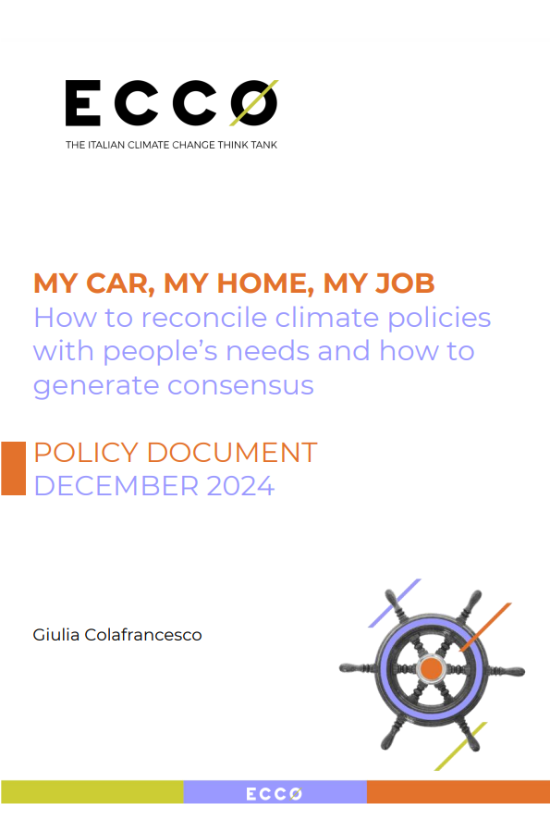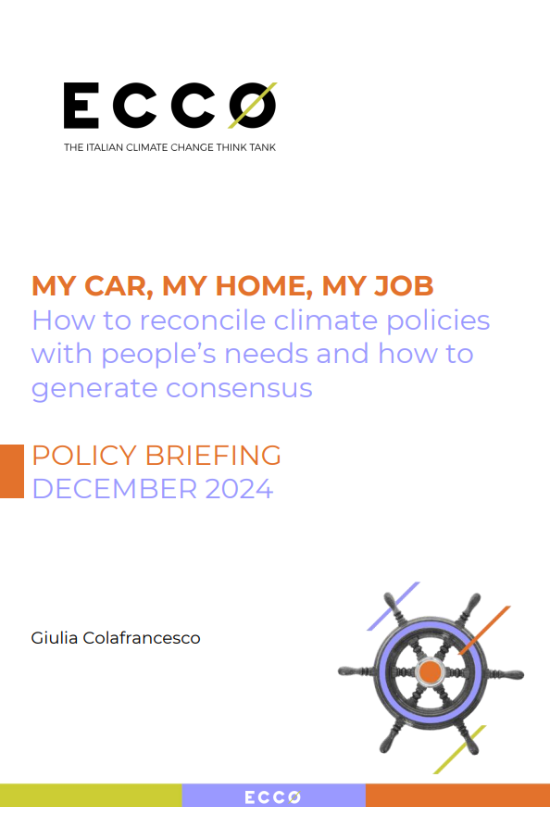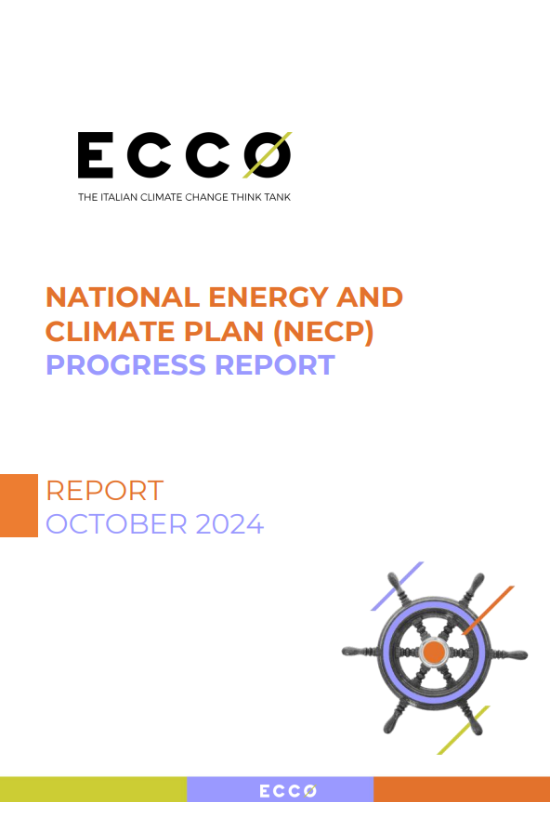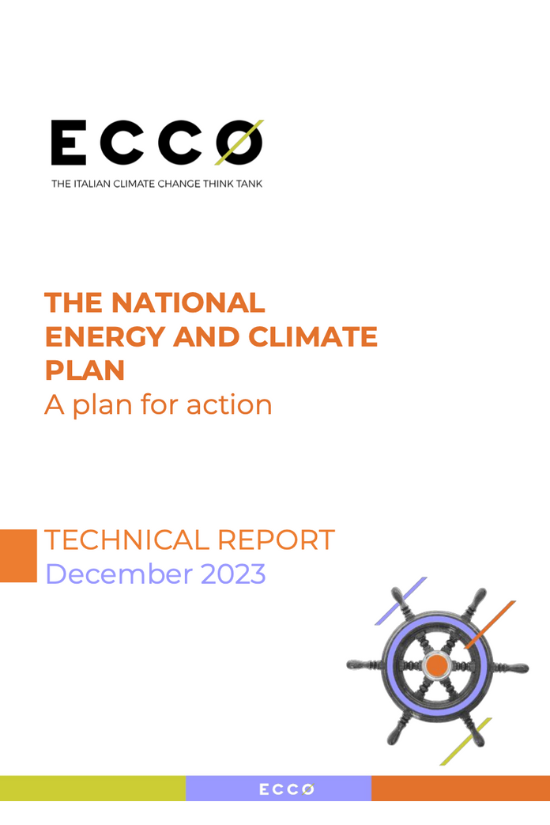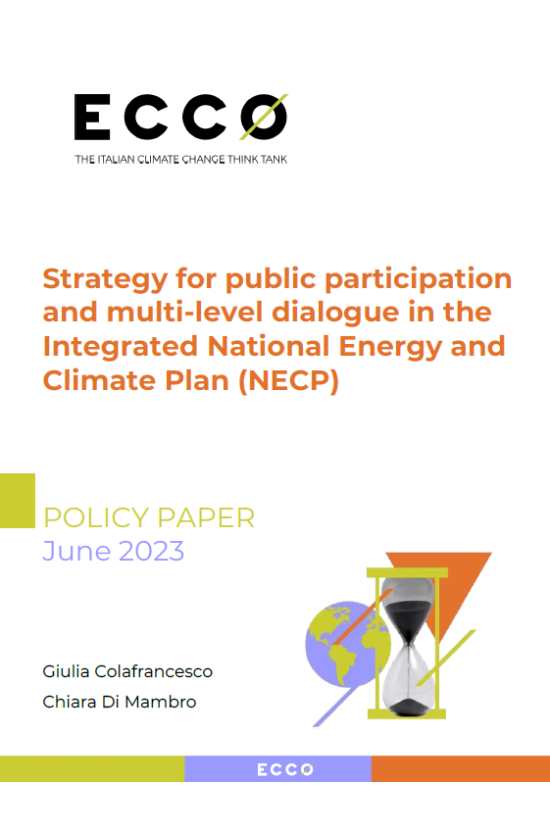Publications
Search
Filters
Authors
/ Alexandra Scott
/ Andrea Ghianda
/ Annalisa Perteghella
/ Beatrice Moro
/ Carolina Bedocchi
/ Caterina Molinari
/ Chiara Di Mambro
/ Chiara Mariotti
/ Chloe Pagliaro
/ Costanza Scano
/ Davide Panzeri
/ ECCO think thank
/ Eleonora Cogo
/ Federico Tassan-Viol
/ Filomena Annunziata
/ Francesca Andreolli
/ Francesca Bellisai
/ Gabriele Cassetti
/ Giovanni D'Amico
/ Giulia Colafrancesco
/ Giulia Giordano
/ Giulia Novati
/ Giulia Signorelli
/ Ilaria Mazzocco
/ Lorena Stella Martini
/ Luca Bergamaschi
/ Luca Iacoboni
/ Mario Noera
/ Marta Lovisolo
/ Massimiliano Bienati
/ Matteo Leonardi
/ Matteo Viola
/ Michele Governatori
/ Nicolas Drago
This document is a first contribution to support policy makers in finding the right tools to interpret the needs of our society along the process of transition away from fossil fuels, as well as building a consensus based political proposal and a shared framework of reference based on the principles outlined in this document. Further, it opens a season of social studies aimed at exploring social, economic and cultural drivers of behaviours in relation to climate action.
Decarbonising our economies to face the threat of climate change is not an easy task, but we cannot shy away from tackling distributional issues and inequality. A political strategy is necessary to smoothly guide people when faced with the high costs of the transition, a tight timeframe and other barriers. This policy brief serves as a first contribution to finding the right tools to interpret the needs of our society and solve its structural problems along the process of transitioning away from fossil fuels.
As a party to the Paris Agreement and as a member of the European Union, Italy’s national contribution is linked with that of other member states and, together, they are legally obliged to achieve a 55% reduction in net emissions, compared to 1990 levels, by 2030. The National Energy and Climate Plan (NECP) provides a national framework for countries to implement their emissions reduction commitments. A Plan that openly falls short of some of the objectives set by the Fit for 55 proposals.
The NECP provides a framework for EU Member States to implement their emission reduction commitments for a ten-year period. These must be aligned with the Paris Agreement. The current revision of the NECP must be built on the target of reducing emissions by at least 55% by 2030, compared to 1990 levels, as detailed in the Fit for 55 package. The NECP should thus include the strategy to align with the EU’s collective target for 2030, as well as achieving net-zero emissions by 2050.
Italy, like other European countries, has been called upon to structure the process of updating the Integrated National Energy and Climate Plan (NECP) through public participation and effective multi-level dialogue, as envisaged by the Energy Union Governance Regulations and reiterated by the Commission’s Guidelines for revision of the Plan. This work shows the availability of resources, time and knowledge to make the NECP a plan that reflects the needs of the country, through a participation-based path.
This document is a first contribution to support policy makers in finding the right tools to interpret the needs of our society along the process of transition away from fossil fuels, as well as building a consensus based political proposal and a shared framework of reference based on the principles outlined in this document. Further, it opens a season of social studies aimed at exploring social, economic and cultural drivers of behaviours in relation to climate action.
Decarbonising our economies to face the threat of climate change is not an easy task, but we cannot shy away from tackling distributional issues and inequality. A political strategy is necessary to smoothly guide people when faced with the high costs of the transition, a tight timeframe and other barriers. This policy brief serves as a first contribution to finding the right tools to interpret the needs of our society and solve its structural problems along the process of transitioning away from fossil fuels.
As a party to the Paris Agreement and as a member of the European Union, Italy’s national contribution is linked with that of other member states and, together, they are legally obliged to achieve a 55% reduction in net emissions, compared to 1990 levels, by 2030. The National Energy and Climate Plan (NECP) provides a national framework for countries to implement their emissions reduction commitments. A Plan that openly falls short of some of the objectives set by the Fit for 55 proposals.
The NECP provides a framework for EU Member States to implement their emission reduction commitments for a ten-year period. These must be aligned with the Paris Agreement. The current revision of the NECP must be built on the target of reducing emissions by at least 55% by 2030, compared to 1990 levels, as detailed in the Fit for 55 package. The NECP should thus include the strategy to align with the EU’s collective target for 2030, as well as achieving net-zero emissions by 2050.
Italy, like other European countries, has been called upon to structure the process of updating the Integrated National Energy and Climate Plan (NECP) through public participation and effective multi-level dialogue, as envisaged by the Energy Union Governance Regulations and reiterated by the Commission’s Guidelines for revision of the Plan. This work shows the availability of resources, time and knowledge to make the NECP a plan that reflects the needs of the country, through a participation-based path.
